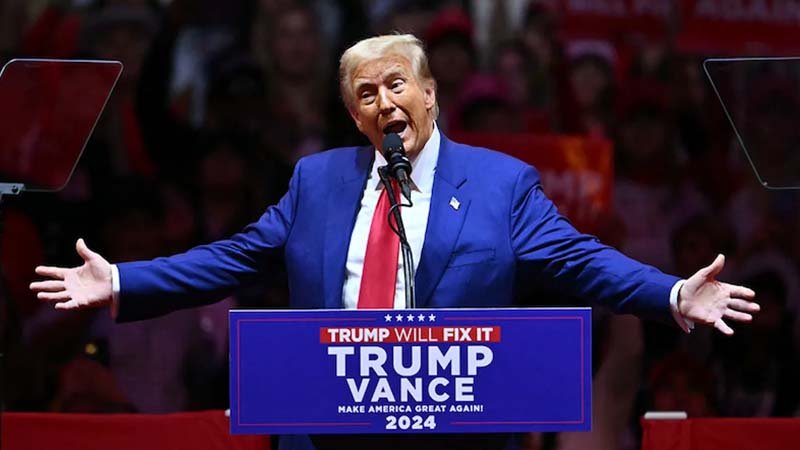
(Angela Weiss/AFP)
Former President Donald Trump is urging the Senate to go into recess so he can make executive branch appointments without the need for congressional approval, a move that could include controversial figures like Rep. Matt Gaetz (R-FL) for attorney general. This push has left some of Trump’s GOP allies uneasy, with one of his potential White House press secretary candidates acknowledging that it would be “pushing the limits” of his authority, according to The NY Post.
NBC’s Phil Mattingly discussed the issue on The Lead with Jake Tapper, explaining that while presidents have occasionally used recess appointments, no president has ever tried to force the Senate into recess purely to make such appointments.
“It would create—in terms of separations of powers and the authority of the Senate, you heard some senators take very, very seriously, it would create a massive issue for the Republican conference,” Mattingly explained.
When Tapper asked about the precedent for such a move, Mattingly confirmed there was no precedent for a president asking the majority leader to call for a recess solely for the purpose of making recess appointments.
“Now to be clear, before the Supreme Court decision during the Obama administration,” which limited when recess appointments can be made, “this was done 100 times in both the George W. Bush administrations and in the Bill Clinton administrations,” Mattingly noted. “Sometimes it was an end-around for a troubled nominee. A lot of times it was just to speed up the process to get a lot of people done at once. What the former president and president-elect is putting on the table right now is unprecedented.”
Mattingly emphasized that Trump’s move essentially challenges his new Republican majority. He is placing his allies in a position where they must either expedite the confirmation of his nominees—despite not having enough votes—or risk an intraparty conflict.
“What he is doing is he’s essentially challenging his new Republican majority, his allies ostensibly, out of the gate, and putting them in a position where they either have to move his nominees incredibly fast, even though it doesn’t seem like they have 50 votes, or run up against a very real blowup, intraparty, right off the bat,” Mattingly added. Trump’s proposed strategy may trigger significant challenges for his GOP allies and could set the stage for a tumultuous confirmation process.


